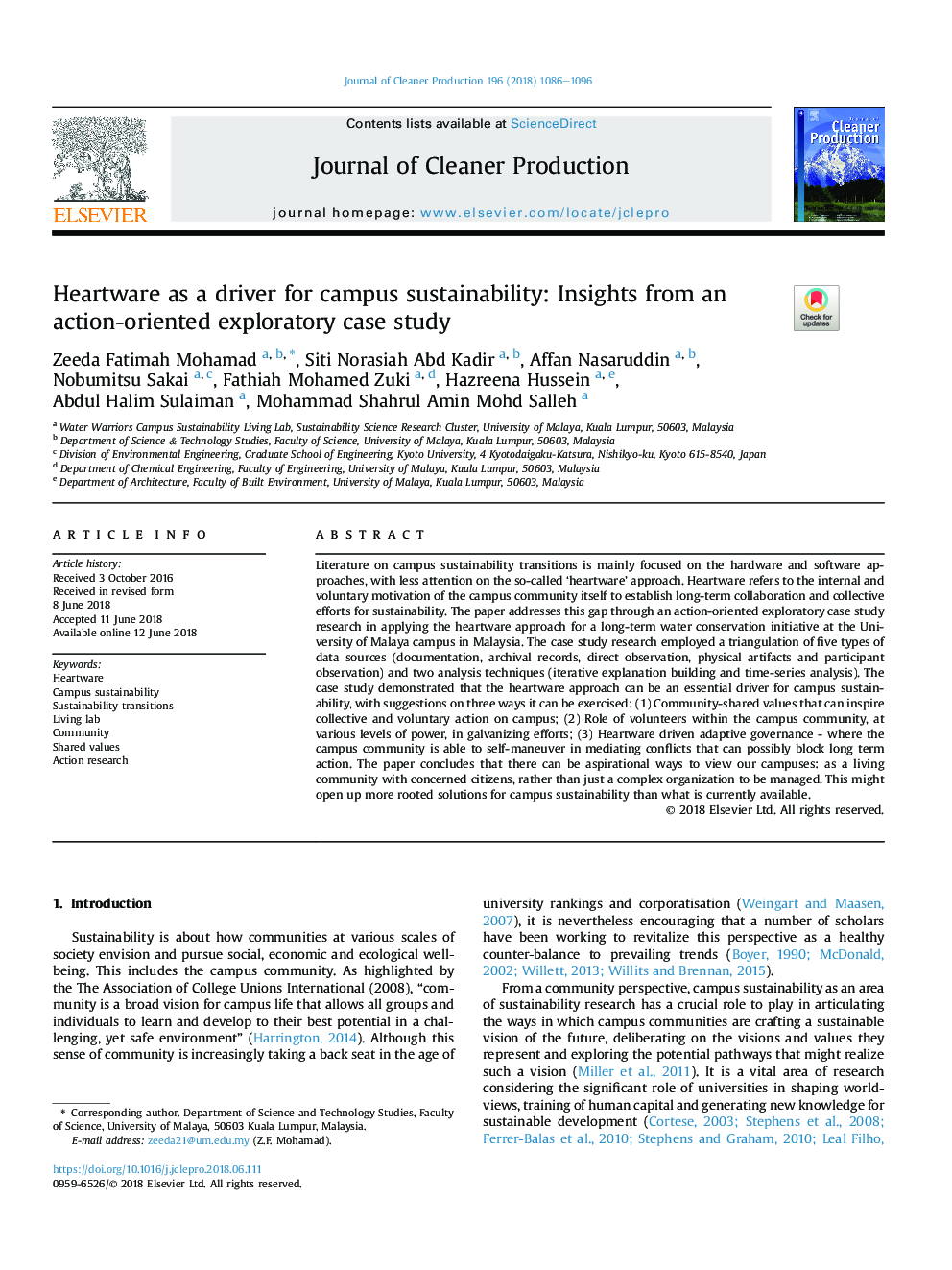| Article ID | Journal | Published Year | Pages | File Type |
|---|---|---|---|---|
| 8094083 | Journal of Cleaner Production | 2018 | 11 Pages |
Abstract
Literature on campus sustainability transitions is mainly focused on the hardware and software approaches, with less attention on the so-called 'heartware' approach. Heartware refers to the internal and voluntary motivation of the campus community itself to establish long-term collaboration and collective efforts for sustainability. The paper addresses this gap through an action-oriented exploratory case study research in applying the heartware approach for a long-term water conservation initiative at the University of Malaya campus in Malaysia. The case study research employed a triangulation of five types of data sources (documentation, archival records, direct observation, physical artifacts and participant observation) and two analysis techniques (iterative explanation building and time-series analysis). The case study demonstrated that the heartware approach can be an essential driver for campus sustainability, with suggestions on three ways it can be exercised: (1) Community-shared values that can inspire collective and voluntary action on campus; (2) Role of volunteers within the campus community, at various levels of power, in galvanizing efforts; (3) Heartware driven adaptive governance - where the campus community is able to self-maneuver in mediating conflicts that can possibly block long term action. The paper concludes that there can be aspirational ways to view our campuses: as a living community with concerned citizens, rather than just a complex organization to be managed. This might open up more rooted solutions for campus sustainability than what is currently available.
Keywords
Related Topics
Physical Sciences and Engineering
Energy
Renewable Energy, Sustainability and the Environment
Authors
Zeeda Fatimah Mohamad, Siti Norasiah Abd Kadir, Affan Nasaruddin, Nobumitsu Sakai, Fathiah Mohamed Zuki, Hazreena Hussein, Abdul Halim Sulaiman, Mohammad Shahrul Amin Mohd Salleh,
